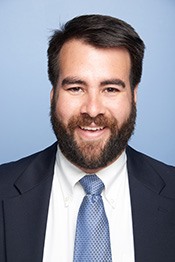Artificial Intelligence in the Clinic - Is It Going to Help Or Hurt Our Productivity?
C Cardenas1*, Y Yang2*, A Apte3*, K Moore4*, D Ruan5*, (1) UT MD Anderson Cancer Center, Houston, TX, (2) Stanford University Cancer Center, Stanford, CA, (3) Memorial Sloan-Kettering Cancer Center, Maywood, NJ, (4) UC San Diego, La Jolla, CA, (5) UCLA School of Medicine, Los Angeles, CA
Presentations
1:24 PM Clinical Implementation of an Auto-Planning and Plan Check Tool - Y Yang, Presenting Author
1:48 PM From Data to Segmentation models: AI for Everybody - A Apte, Presenting Author
2:12 PM Widespread Clinical Implementation of Data-driven Automated Treatment Planning - K Moore, Presenting Author
2:36 PM The Two Sides of the AI Coin - D Ruan, Presenting Author
WE-CD-TRACK 7-0 (Wednesday, 7/28/2021) 1:00 PM - 3:00 PM [Eastern Time (GMT-4)]
This session is intended for clinicians who are asking themselves how artificial intelligence may change their clinical tasks. Recent research has shown that artificial intelligence algorithms can solve tasks with an accuracy comparable to a human interpreter. Similarly, scripting has been shown to automate some repetitive tasks. Most clinicians would question if the promises of research abstracts will hold in day-to-day clinical work where many practical considerations are essential in addition to the pure accuracy of automation algorithms. The session will explore how AI algorithms can be integrated with the clinical workflow by using scripting to enable them in commercial software, with the ultimate question of if AI research can indeed become a tool that keeps up to its promise to improve productivity.
Another function of this session is to explain in layman terms what AI and scripting can and can’t do, and how we see the field changed by automation in the upcoming future. It is not intended as a collection of research or clinical topics; instead, an example of how AI and clinical duties can be bridged by scripts to include automation algorithms in our clinical lives, for tasks where current research can replace human thinking. The session’s objectives are balanced on both the advantages and pitfalls of automation through AI, presented to a clinically minded audience.
Each speaker will give an overview of an AI application, covering integration with the clinical software and describing their experience in adapting these changes to daily clinical hurdles. It should not focus on mathematics but on the experience with implementing these in the clinic. A panel discussion will be held to answer questions.
Learning Objectives:
1. Present planning tasks that can be automated by current research to a clinical audience
2. Describe the pros and cons of automation from the end-user’s perspective
3. Detail the hurdles encountered when implementing AI algorithms on real clinical datasets
Handouts
- 166-57311-15651646-170894.pdf (Aditya Apte)
Keywords
Not Applicable / None Entered.
Taxonomy
Not Applicable / None Entered.
Contact Email










